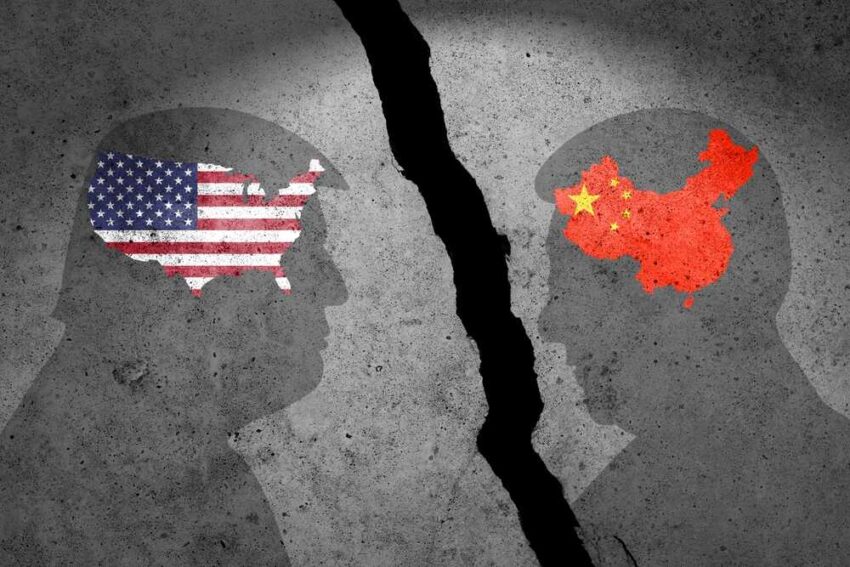(LibertySociety.com) – China and the United States face a new round of trade tensions as President Trump accuses Beijing of violating a recent agreement, while China leverages its control of critical resources in the escalating technology confrontation.
At a Glance
- China and the US are experiencing renewed tensions over chip access and rare earth minerals despite a recent tariff agreement
- President Trump has accused China of violating the trade deal signed last month
- China maintains significant leverage through its dominance of the global rare earths market
- US restrictions on AI chip exports and potential Chinese student visa revocations have further strained relations
Trade Agreement in Jeopardy
The fragile trade relationship between the world’s two largest economies is showing signs of strain just weeks after an agreement was reached to reduce tariffs. President Donald Trump has directly accused China of failing to honor commitments made in last month’s trade deal, escalating concerns about the sustainability of any détente between Washington and Beijing. The accusation comes amid growing tensions over technology access, particularly regarding advanced semiconductors and the rare earth minerals essential for their production.
According to reports, President Trump has sought direct communication with Chinese President Xi Jinping to address these concerns. This move underscores the seriousness of the situation and suggests that high-level diplomatic interventions may be necessary to prevent further deterioration in bilateral relations. The White House has not yet confirmed whether such a call has taken place or been scheduled.
China’s Rare Earth Advantage
China’s dominant position in the global rare earths market provides Beijing with significant leverage in the ongoing trade dispute. These minerals are critical components in everything from smartphones to military equipment, and China controls approximately 80% of global processing capacity. This monopolistic position gives President Xi a powerful bargaining chip as tensions with the United States escalate over technology transfer and market access.
“President Donald Trump on Friday accused China of violating the agreement struck last month, and sought a call with his Chinese counterpart Xi Jinping to sort things out.”
The rare earths market represents a vulnerability in America’s technology supply chain that has concerned national security experts for years. Previous attempts to diversify supply sources have made limited progress, leaving U.S. manufacturers dependent on Chinese processors. This dependency becomes increasingly problematic as Washington implements new export controls targeting advanced AI chips and semiconductor design software bound for China.
Technology and Education Restrictions
Beyond the dispute over rare earths, the Biden administration has implemented new export control rules specifically designed to prevent advanced AI chips from reaching China. These restrictions represent the latest effort to slow China’s technological advancement in strategic sectors like artificial intelligence and quantum computing. Chinese officials have responded with strong diplomatic protests, characterizing these measures as violations of normal trade relations and harmful to global supply chains.
Further complicating matters, discussions within the U.S. government about potentially revoking visas for Chinese students in certain technical fields have raised concerns about the broader impact on scientific cooperation and educational exchange. Such a move would represent a significant escalation, potentially affecting thousands of Chinese nationals currently studying at American universities and research institutions. Education experts warn that such restrictions could damage America’s position as a global leader in scientific research.
Economic and Strategic Implications
The renewed tensions come at a delicate time for both economies. Markets had responded positively to the tariff reduction agreement, but uncertainty has returned following President Trump’s accusations. The technology sector appears particularly vulnerable to continued friction, with semiconductor manufacturers and rare earth processors facing potential disruptions to established supply chains and business models.
For American consumers and businesses, the prospect of renewed trade tensions raises concerns about price increases and supply shortages for electronics and other technology products. Meanwhile, the strategic competition for technological supremacy continues to intensify, with both nations viewing dominance in fields like artificial intelligence and quantum computing as essential to future economic and military power.
Copyright 2025, LibertySociety.com
Click this link for the original source of this article.
Author: Editor
This content is courtesy of, and owned and copyrighted by, https://libertysociety.com and its author. This content is made available by use of the public RSS feed offered by the host site and is used for educational purposes only. If you are the author or represent the host site and would like this content removed now and in the future, please contact USSANews.com using the email address in the Contact page found in the website menu.








